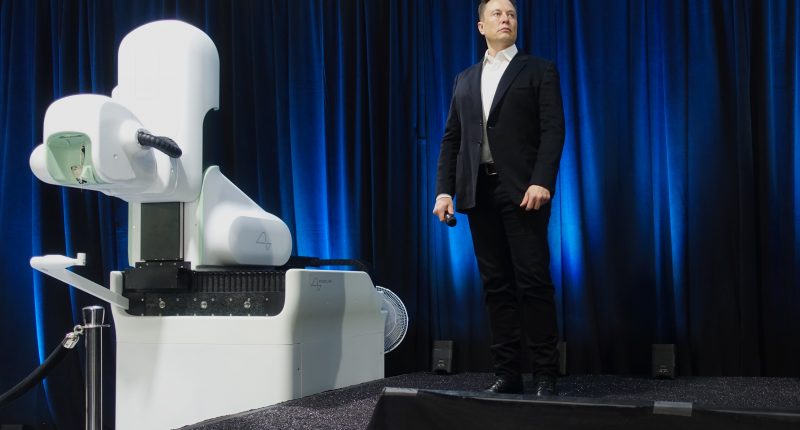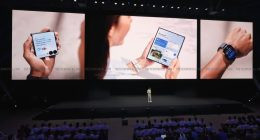In what perhaps is the first step towards the transition from humans to cyborgs (scoffs), Elon Musk’s neural interface technology company Neuralink has received the green light from an independent review board to begin the recruitment for the first human trials of its brain implant for paralysis patients. The firm has already begun recruitments for the same, and will be testing the brain chip implants to help those with paralysis control electronic devices.
Known as the PRIME (Precise Robotically Implanted Brain-Computer Interface) study, the initial trial consists of a period of six years, and is focused on evaluating the safety and functionality of Neuralink’s brain-computer interface (BCI) implant. “We are happy to announce that we’ve received approval from the reviewing independent institutional review board and our first hospital site to begin recruitment for our first-in-human clinical trial,” Neuralink said in an official statement.
The trial is specifically tailored to individuals afflicted with paralysis resulting from cervical spinal cord injuries or amyotrophic lateral sclerosis (ALS). Participants in the PRIME Study must meet specific criteria to qualify for this groundbreaking trial. They should be a minimum of 22 years old and suffering from quadriplegia due to cervical spinal cord injury or ALS. Furthermore, participants must have a reliable caregiver as involvement in the study demands substantial commitments. These commitments include 18 months of active study involvement, featuring nine visits with researchers. Subsequently, participants are expected to engage in bi-weekly research sessions and continue with 20 more visits spread over five years.
A key aspect of the PRIME Study involves the implantation of the BCI. This process is a marvel of modern technology. Employing a robot (the R1 robot), the procedure precisely places ultra-fine and flexible threads of the BCI into a specific region of the brain responsible for controlling movement intentions. Importantly, once in place, the implant (the N1 implant) is virtually invisible to the naked eye. It operates wirelessly, transmitting crucial brain signals to an associated app (the N1 User App). This app, in turn, deciphers the user’s intentions, initially enabling them to control a computer cursor or keyboard using only their thoughts.
Elon Musk’s ambitions for Neuralink extend far beyond assisting paralysis patients. He envisions the technology as a versatile tool that can tackle an array of medical challenges. Musk has articulated hopes that Neuralink’s brain-chip technology could potentially address conditions such as obesity, autism, depression, and schizophrenia. In essence, Neuralink represents a bold step toward achieving what Musk has termed “symbiosis with artificial intelligence,” bringing humans and technology closer than ever.
While Neuralink’s entry into human trials is undoubtedly groundbreaking, the path ahead is fraught with challenges. Even if the BCI device proves safe for human use, experts caution that securing commercial use clearance may be a protracted process, potentially spanning over a decade. Not to mention that Neuralink has faced scrutiny and controversy in the past, particularly concerning its treatment of animals during testing – 1500 test animals have already died so far, and any further deaths or accidents during the trials will only increase the heat on the firm.





